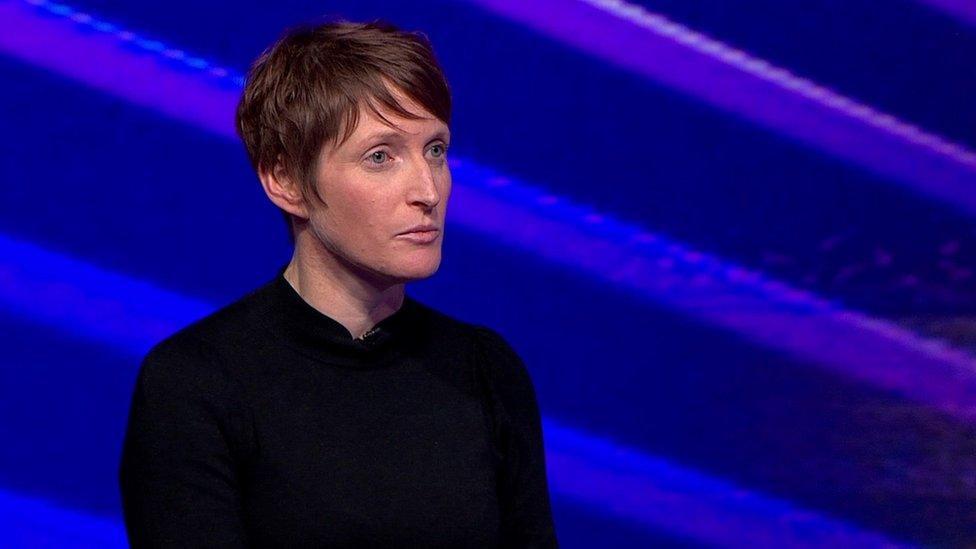WRU sexism claims prompt more women to speak out
- Published
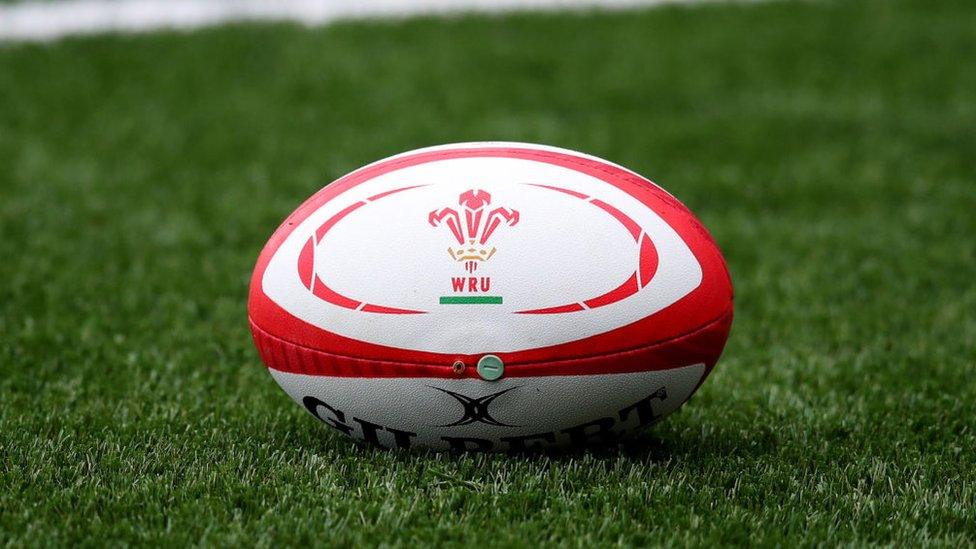
Welsh rugby is at the centre of a storm about sexism and misogyny
Women who for 30 years remained silent about the misogyny they say they faced while working in sport have shared their stories following allegations made against the Welsh Rugby Union.
Last week, two former female employees said they were left suicidal by their treatment at the governing body.
The WRU said both cases were investigated, external. On Sunday its chief executive Steve Phillips resigned.
The allegations have prompted other women to speak out for the first time.
When these latest allegations were put to the WRU, its acting chief executive Nigel Walker said it was "extremely harrowing to hear of the experiences these women have endured" and said the WRU was "deeply sorry".
Warning: This story contains offensive language
Cath, who does not wish to give her surname, worked as a press officer for the WRU in the late '90s when she was in her 20s.
"I was absolutely astounded at the amount of sexism I saw there, it was just all day, every day," she said.
"It was often from committee members and from the people right at the top."
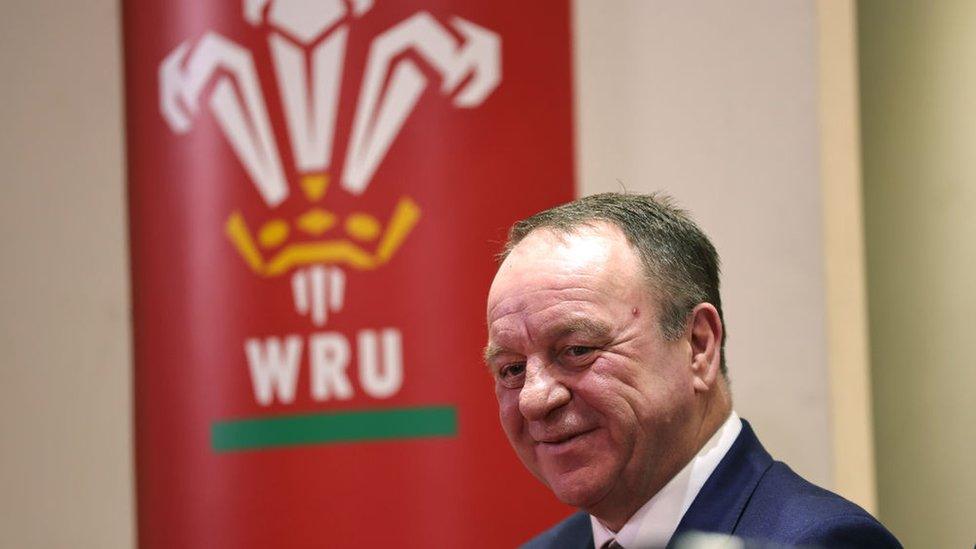
Steve Phillips, 58, resigned after facing pressure over the WRU's handling of the issues raised in the Wales Investigates programme
She said the behaviour of the committee "shocked me and everyone else every single day".
"There was one comment which stands out above all others and it involves a really terrible word," she said.
She said there was a woman reaching down under a desk to get something as committee members came through the department, and that one of them made a deeply derogatory comment about the woman's body shape using the N-word.
"I heard that 20 years ago and it's still shocks me now," she said.
"We were all horrified but none of us were shocked - it really did feel as if the women were seen very much differently to the men."
Of another senior figure, she said: "I don't think I had a single conversation with him where he didn't look at my chest."
She said on one occasion a committee meeting was being held that she needed to report to the press afterwards.
"I couldn't believe it that I wasn't allowed into the committee room because I was a woman," she said.
She said her male manager was allowed inside the room and had to whisper what was going on through the slightly ajar door so she could write it down.
'I've never watched rugby again'
"That was just normal, that was just the way they operated," she said.
"Nobody ever spoke up and said 'actually that's not quite right'... there was always this underlying notion that if you were to say something then you would be in the wrong because nobody else is saying anything."
She said that while at the WRU she was "furious all of the time... so jaded".
It has had a lasting impact on her.
"I was so disillusioned I've never watched rugby again - even now with the Six Nations I can't even watch it," she said.
"I just think of all the awfulness underneath that glitzy surface, and I just want no part of it.
"I cannot believe we are still having this conversation, it's staggering."
She would like to see the WRU "get its house in order" with a "root and branch" investigation and go through "the minutia of every complaint and speak to every name that's been mentioned".
'How long does it take to get your knickers off?'
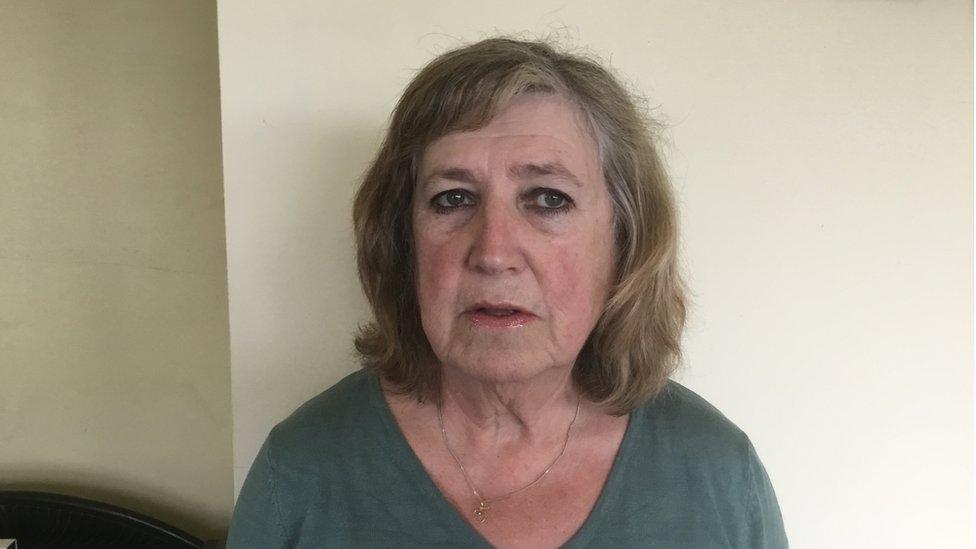
Jane says she still feels "very, very sick" whenever she thinks about the incident
Jane Anderson was a national development officer with the Sports Council for Wales, now Sports Wales, and was based at Sophia Gardens in Cardiff between 1991 and 1993.
She said on a training day shortly after she took up the role, she was made to feel very uncomfortable by a delegate from the WRU.
"The person in question leaned across the table to me and said 'how long does it take to get your knickers off?'
"I was so surprised I thought perhaps I'd misheard him and I said 'pardon?' and he repeated it again.
"So I just collected all my bits and papers in front of me and moved to another table."
She said she did not want to "make the fuss" as she was new to Wales and still in her probationary period at the Sports Council for Wales.
The next day she wrote a memo to a more senior colleague, telling them about the incident and was "fully expecting some action to be taken".

Jane says it took her 20 months to find a new job and leave following the incident
She said she was called into the office where the memo was torn up in front of her and thrown into the bin.
She said she was told words to the effect of: 'You're in Wales now Jane, you just have to get on with it. It's of no consequence'.
"At that moment I realised I was in the wrong job," she said.
It took her 20 months to find a new job and leave.
"It scarred me," said Jane, 65, from Mumbles, Swansea.
"I still feel very, very sick whenever I think about it," she said.
She had previously worked in sport in England where she said she had never been treated with disrespect but found a "completely different culture" in Wales.
She said when she heard the new allegations made in the Wales Investigates programme, her stomach turned.
She said Sports Council for Wales should have held the WRU to account, but let them get away with it.
In a statement, Sport Wales said: "We are truly sorry to Ms Anderson for the treatment that she received between 1991 and 1993. Our thoughts are with anyone who has been subject to this type of conduct. We now have thorough procedures and protocols in place to support anyone who comes forward to us to report such behaviour. But that doesn't mean that we can or will be complacent. The serious allegations made against the WRU this week have highlighted a clear need for more to be done in this area."
It said it was "ready and willing to support any subsequent plans following an investigation into the culture at the WRU".
'Extremely harrowing'
Responding to the allegations made by Jane and Cath, the WRU's acting chief executive, Nigel Walker, said: "It is extremely harrowing to hear of the experiences these women have endured.
"The behaviour described has no place in society, at the Welsh Rugby Union nor in Welsh rugby.
"We wholeheartedly condemn these attitudes and behaviours."
He said the WRU worked hard on equality, diversity and inclusion but acknowledged it had let individuals down in the past and in very recent history.
He said a taskforce would have open access to all quarters of the WRU and it looked forward to implementing necessary change.
"Finally, it is important for those of us here now at the WRU to sincerely apologise for the actions, attitudes and behaviours described," he said.
"Our game has failed these individuals and we are deeply sorry."
'Absolutely horrible'
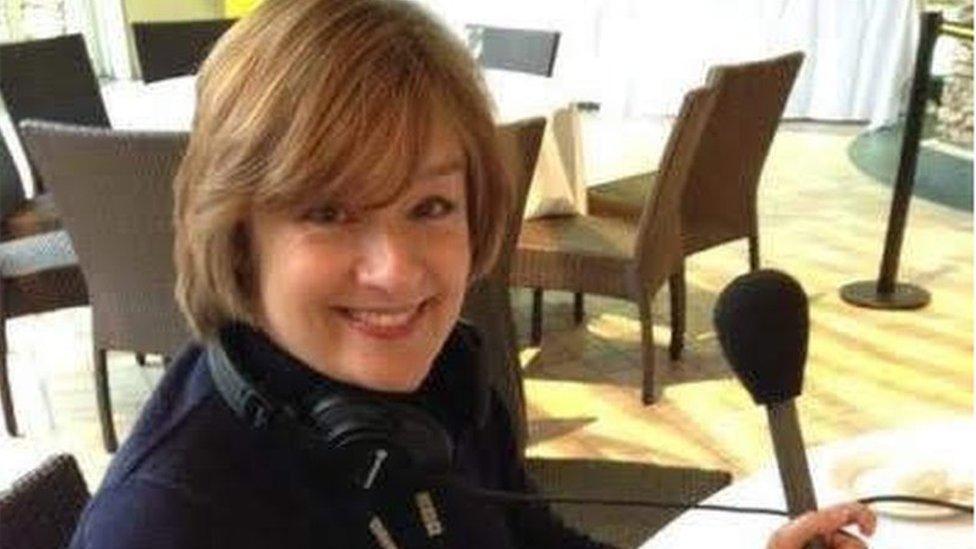
Sally Challoner recalls an "absolutely horrible" experience while covering a charity event in England for BBC Radio Gloucestershire
The Wales Investigates programme also prompted Sally Challoner to get in touch.
Her experience does not involve the WRU but occurred at a rugby event in England.
She said back in the early 1990s, when she was 27 and working as a reporter for BBC Radio Gloucestershire, a "horrible" incident took place.
She was covering a charity event in Gloucestershire, which was being hosted by a former international rugby player.
She recalled she was the only woman in a room full of male rugby players.
"I was chatting to [the host] about the charity... after that he got me to sit on his lap, forced me onto his lap and he auctioned me off to the highest bidder," she said.
"It sounds quite funny doesn't it, but it's the arrogance of it - it doesn't matter how you feel, doesn't matter if you're scared and one woman in this room full of rugby players and you're 27.
"And it was horrible, absolutely horrible.
"I couldn't get out of there fast enough."
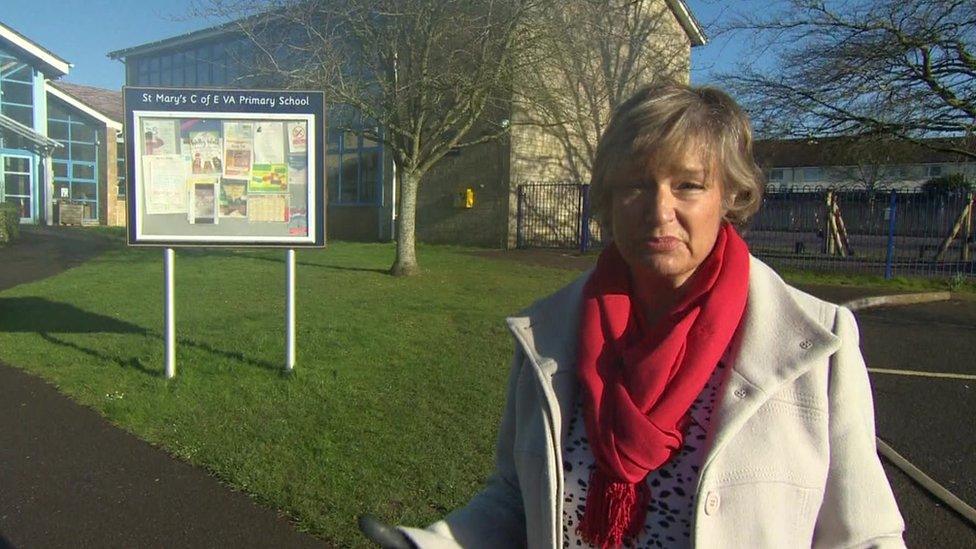
Sally was at the start of her career with the BBC when the incident happened
She told her boyfriend what had happened and he encouraged her to report it but she said doing so would have been futile.
"I've had misogyny and sexism at every job I've ever been in," she said.
"I'd reported it in the last place I'd worked and it had just got worse.
"In a way I wish I'd said something at the time, but it just wasn't the time in the '90s."
She said her boss at the time was a "lovely, lovely man" but he "just wouldn't have got it" and she feared if she had raised it she would have been laughed at.
Sally, who is from Chepstow, Monmouthshire, said seeing the recent allegations of misogyny against the WRU left her feeling "so disappointed".
Rugby Football Union, the national governing body for rugby union in England, declined to comment.
If you have been affected by any of the issues in this story, the BBC Action Line has links to organisations which can offer support and advice.

BBC Wales Investigates: Welsh Rugby under the Spotlight
Investigating claims of sexism, bullying and sexual harassment at the Welsh Rugby Union. A former manager talks about her time at the WRU, and others share their stories.

Have you been affected by the issues raised in this story? Share your experiences by emailing haveyoursay@bbc.co.uk, external.
Please include a contact number if you are willing to speak to a BBC journalist. You can also get in touch in the following ways:
WhatsApp: +44 7756 165803
Tweet: @BBC_HaveYourSay, external
Please read our terms & conditions and privacy policy
If you are reading this page and can't see the form you will need to visit the mobile version of the BBC website to submit your question or comment or you can email us at HaveYourSay@bbc.co.uk, external. Please include your name, age and location with any submission.
- Published23 January 2023
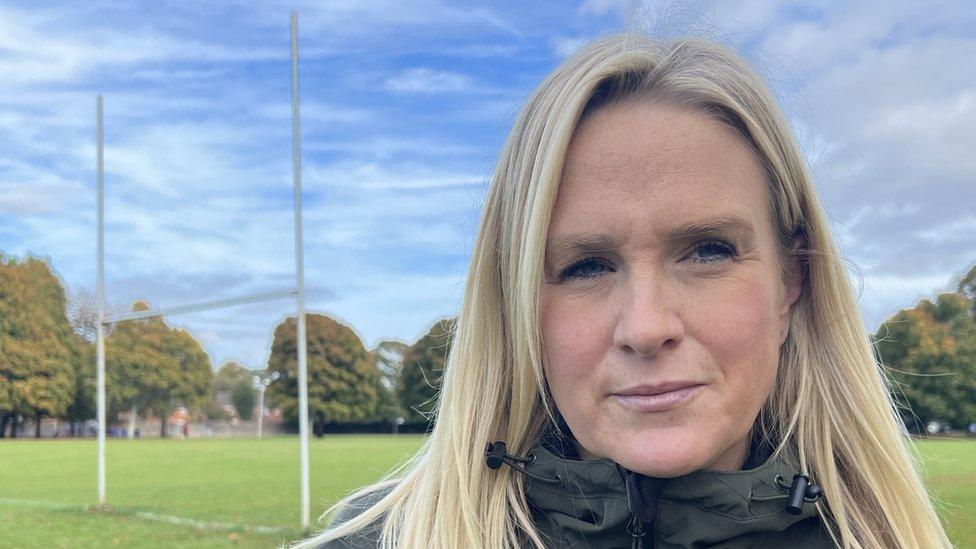
- Published25 January 2023
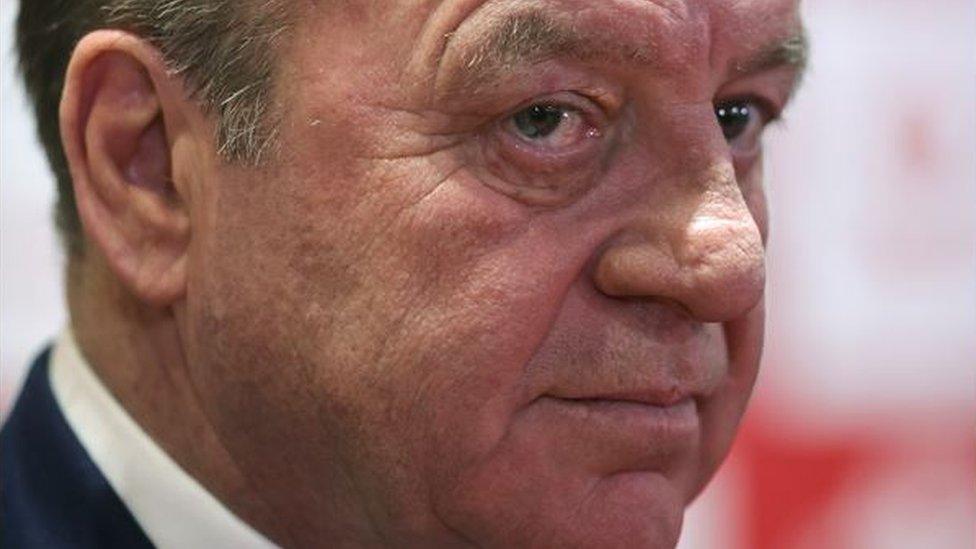
- Attribution
- Published25 January 2023
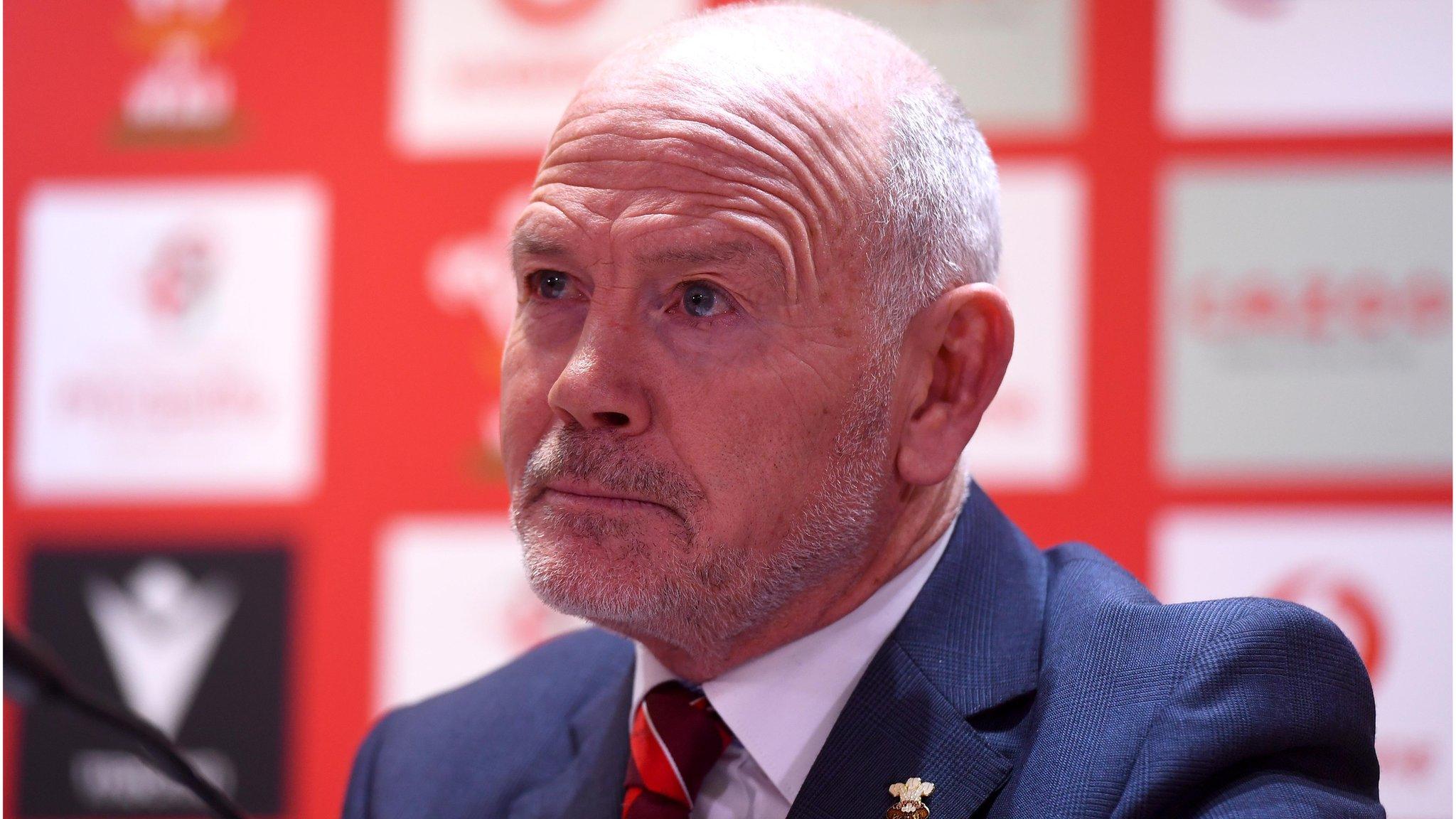
- Published24 January 2023
